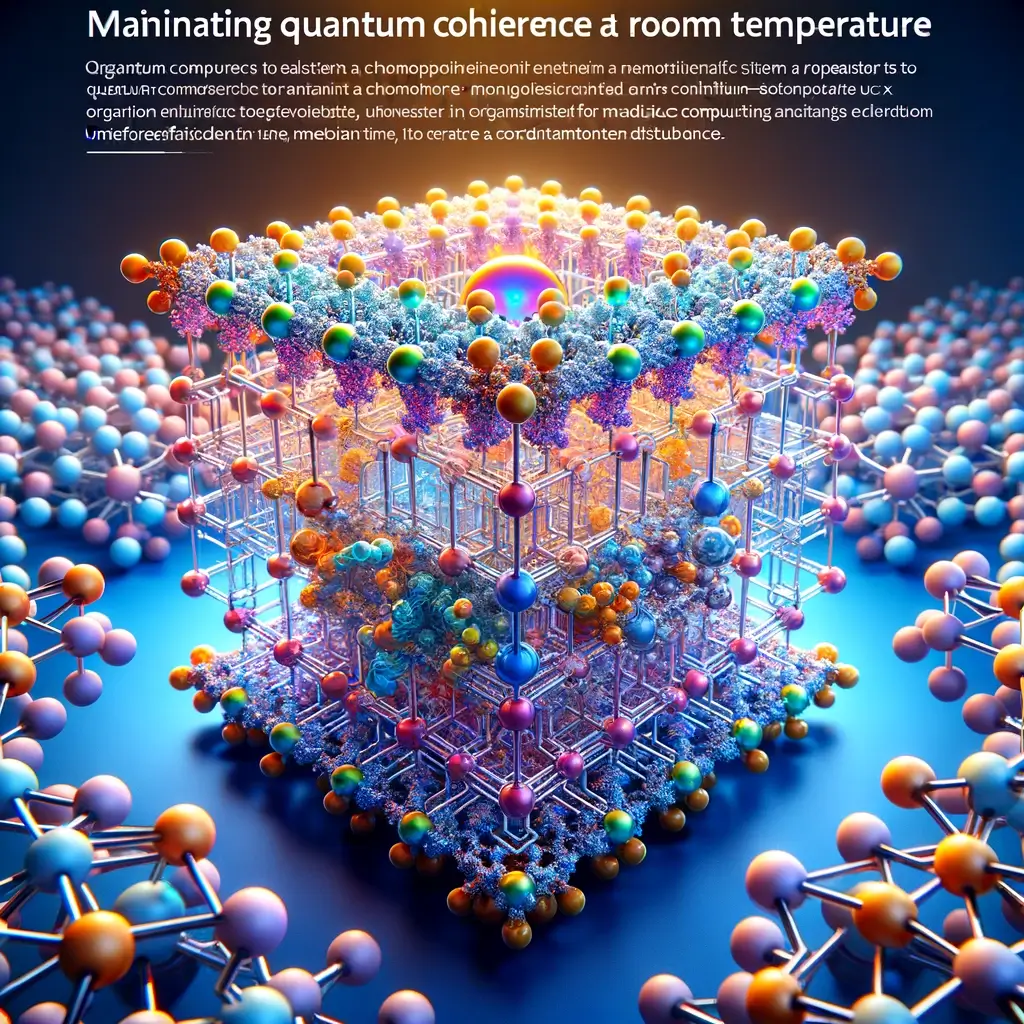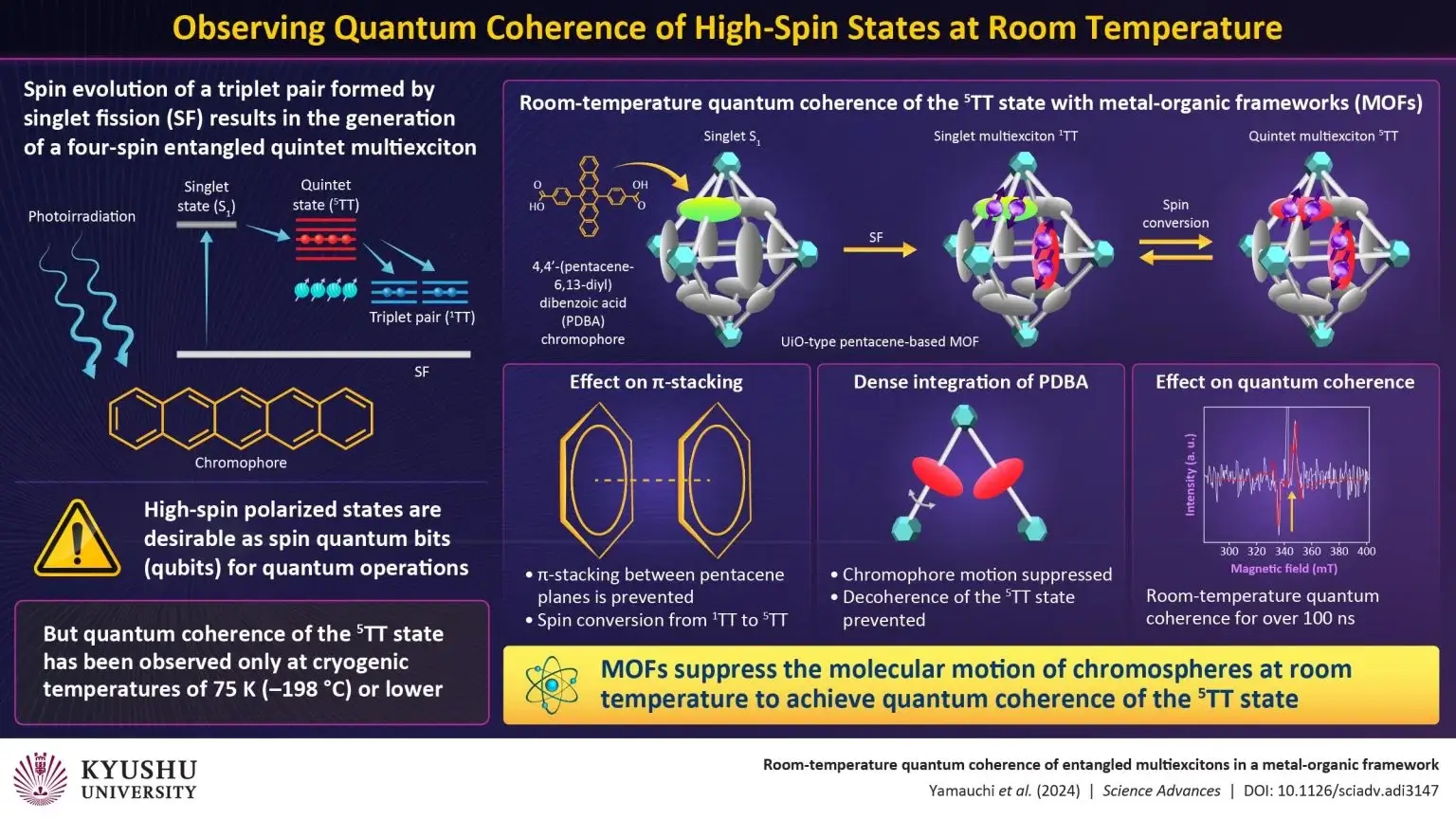Researchers from Japan achieved a significant breakthrough in the field of quantum computers, by maintaining quantum coherence at room temperature. Quantum coherence describes the ability of a quantum system to maintain a well-defined state over time, without being affected by environmental disturbances

Researchers from Kyushu University, in collaboration with researchers from Kobe University, achieved a significant breakthrough in the field of quantum computers, by maintaining quantum coherence at room temperature. Quantum coherence describes the ability of a quantum system to maintain a well-defined state over time, without being affected by environmental disturbances. This is an important milestone that marks a significant step forward for quantum computing and sensing technologies.
The significant innovation is that the researchers were able to achieve this coherence by embedding a chromophore, a color molecule that absorbs light and emits color, within a metallic organoframework (MOF), a nanoporous crystalline material composed of metal ions and organic ligands.
Organic ligands are organic molecules that can bind to a metal ion and form a complex, also known as an organometallic complex. The ligands are able to donate electron pairs to the metal ion and thus create a coordinative bond. Complexes in which organic ligands are bound to a metallic nucleus via a carbon atom are called organometallic complexes.
The ligand field theory describes the coordinative bond formed between the ligands and the metal ions, and is used to explain the chemical and physical properties of these complexes.
This study, published in the journal Science Advances, describes how the team led by Prof. Nobuhiro Yanai from the Faculty of Engineering at Kyushu University was able to bring about the quantum coherence of a quintet state with four electronic spins in molecular systems at room temperature, a breakthrough not seen before.
This progress indicates the possibility of producing stable qubits at room temperature, an important step towards making the quantum computer a practical reality. Qubits, the quantum analogues of the bits in classical computing, can exist in a superposition of 0 and 1, and be "quantum coupled", so that the state of one qubit can be determined from the other qubit.

According to the study, the incorporation of the chromophore into the organometallic framework allows suppression of the molecular motion enough to maintain the coherence of the quintet state for over 100 nanoseconds.
Difficulties in quantum sensing have also been solved through the use of chromophores, which can activate electrons with desired spins at room temperature. Until now, it has been difficult to achieve quantum coherence at room temperature because the quantum information is lost due to superposition scattering and quantum coherence.
These findings point to a huge potential for further progress in the field of quantum computing and sensing, when it will be possible to produce multiple qubits at room temperature, which will eventually enable molecular quantum computing at room temperature with control of multiple quantum gates and quantum sensing of various compounds.

4 תגובות
What it means? It would be cool if they could make the article accessible to people with little knowledge of quantum physics
It is felt that it is translated. A little clarification is missing. For example, nowhere is it written that today bottles are in some kind of freezer and many other points are not understood.
Congratulations on the discovery.
Peace.